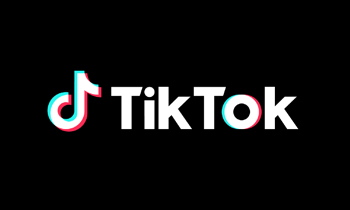September 26, 2025 - DENVER —Young adults turning to TikTok for sexual health information are being confronted  with misinformation, according to research presented during the American Academy of Pediatrics 2025 National Conference & Exhibition at the Colorado Convention Center from Sept. 26-30.
with misinformation, according to research presented during the American Academy of Pediatrics 2025 National Conference & Exhibition at the Colorado Convention Center from Sept. 26-30.
The research, titled “Digital Misinformation and Public Health: A Cross-Sectional Analysis of Sexual Health Content on TikTok,” sought to determine the accuracy of medical information posted on the social media platform, whether created by a medical professional or not.
Researchers created a TikTok account representing a 15-year-old and examined the top 10 videos that appeared under 10 keywords related to sexual and reproductive health. Data showed that 21.4% of the videos created by non-medical professionals contained inaccurate information compared to 3.4% created by medical professionals. The types of misinformation varied but included dangerous advice such as inducing an abortion.
Angeli Sirilan, primary author and medical student at the University of Arizona College of Medicine – Phoenix, said the presence of misleading and potentially unsafe reproductive information on a platform with such a large youth user base is deeply concerning.
“With major variation in school-based health classes, young people often turn to online platforms like TikTok for answers. This highlights the urgent need for educators, parents, and public health leaders to improve both sexual and reproductive health education and social media literacy,” Sirilan said.
Data also showed that over a quarter, or 26.7%, of videos with abortion- related search terms contained inaccurate information, compared to 4.3% of other medically centered videos.
Sirilan said the research also highlights social media companies’ responsibility, especially to young people, to create guardrails and systems to protect them from inaccurate and potentially dangerous health information.
Medical professionals need to be aware of misinformation and take the time to direct pediatric patients toward accurate sources of health information and clarify misconceptions, she said.
The authors did not receive financial support for this research.
Study author Angeli Sirilan is scheduled to present her research, which is below, from 10:20 to 10:30 AM on Sunday, Sept. 28 in the Colorado Convention Center, Meeting Room 111/113. To request an interview with the authors, contact her at asirilan@arizona.edu.
In addition, Ms. Sirilan will be among highlighted abstract authors who will give a brief presentation and be available for interviews during a press conference from noon-1:30 pm Saturday, Sept. 27, in the National Conference Press Room, CCC 705/707. During the meeting, you may reach AAP media relations staff at 303-228-8338.
Please note: only the abstract is being presented at the meeting. In some cases, the researcher may have more data available to share with media, or may be preparing a longer article for submission to a journal.
The American Academy of Pediatrics is an organization of 67,000 primary care pediatricians, pediatric medical subspecialists and pediatric surgical specialists dedicated to the health, safety and well-being of infants, children, adolescents and young adults. For more information, visit www.aap.org. Reporters can access the meeting program and other relevant meeting information through the AAP meeting website at http://www.aapexperience.org/
Program Name: 2025 Call for Abstracts
Submission Type: Council on Adolescents and Young Adults
Abstract Title: Digital Misinformation and Public Health: A Cross-Sectional Analysis of Sexual Health Content on TikTok
Angeli Sirilan
Chandler, AZ, United States
TikTok, a widely used social media platform among adolescents, has become a prominent source of health-related information. In 2024, 4 in 10 young adults reported regularly using TikTok as a primary source of information. However, the content shared on the platform is largely unregulated and often inaccurate. Increased exposure to such content may contribute to risky behaviors, particularly in relation to sexual health. This cross-sectional study aims to assess the accuracy of sexual health information on TikTok.
A cross-sectional study was conducted on Mar 25, 2025. A new TikTok account was created, representing a 15-year-old user. Two reviewers independently examined the top ten videos in English under 3 minutes for ten keywords related to sexual and reproductive health. The (N = 100) videos were classified by both reviewers as accurate, inaccurate, or neutral. Additionally, the reviewers assessed whether the content was posted by a medical professional or promoted unsafe behavior. All evaluations were conducted independently by each reviewer to ensure unbiased results. Inter-rater reliability was calculated using Cohen’s kappa test and other analyses were completed with Chi2 tests in Stata.
Inter-rater reliability was 98% for judgement of accuracy. Of the videos analyzed, 58% were created by healthcare professionals. Videos created by healthcare professionals were more likely to be accurate than videos created by non-healthcare professionals (p < 0.001). Specifically, 3.4% of videos created by healthcare professionals with information were inaccurate, while 21.4% of videos created by non-healthcare professionals were inaccurate. Search terms related to abortion (e.g., how to get an abortion, induced miscarriage, pill abortion) yielded more inaccurate videos (p = 0.001), with 26.7% of abortion-related videos containing inaccurate information compared to 4.3% of other videos. Furthermore, the same search terms were the only terms associated with videos promoting unsafe practices (p = 0.007).
TikTok can be a valuable tool to disseminate reproductive health information among adolescents, and healthcare professionals are often the most accurate sources of information on the platform. Additionally, topics related to abortion had much higher rates of inaccurate information, so healthcare professionals should be aware of potential misinformation in this area. Furthermore, stricter oversight on inaccurate videos could be beneficial, especially for adolescent users.
Source: American Academy of Pediatrics



